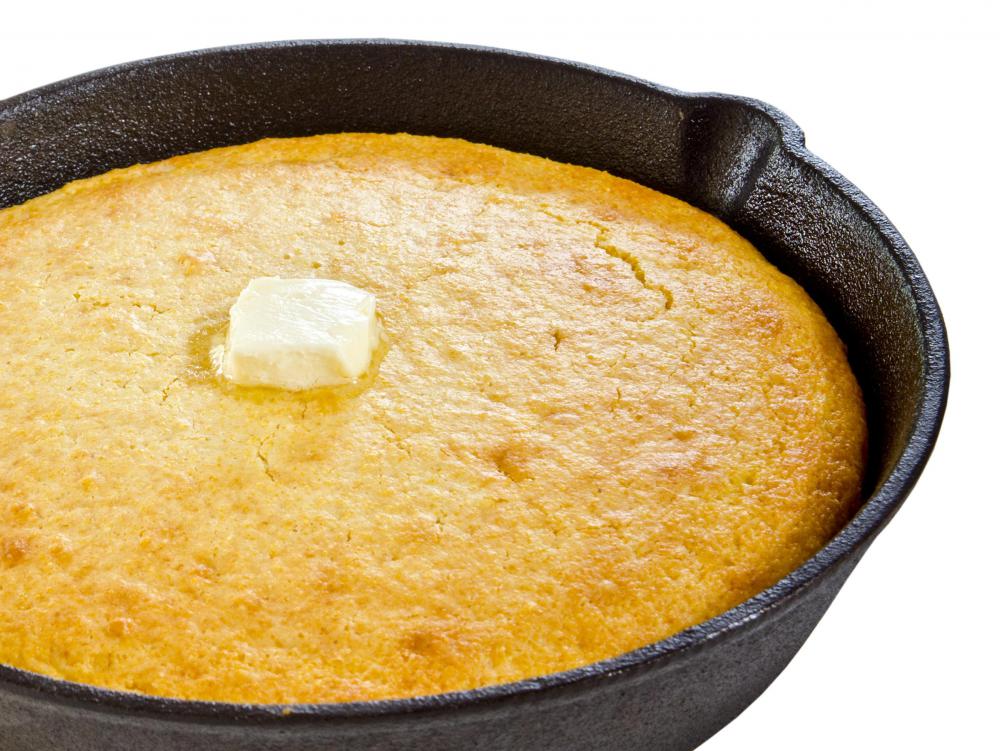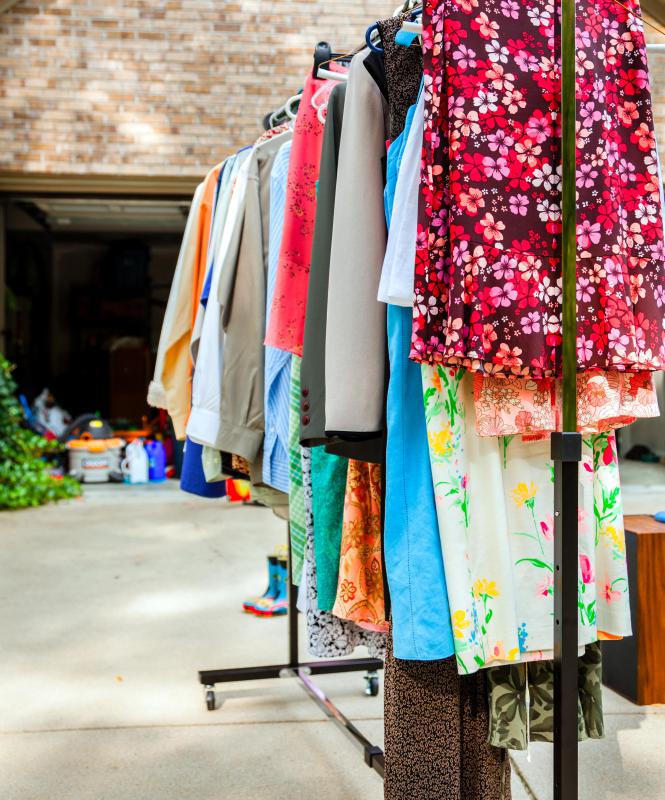At WiseGEEK, we're committed to delivering accurate, trustworthy information. Our expert-authored content is rigorously fact-checked and sourced from credible authorities. Discover how we uphold the highest standards in providing you with reliable knowledge.
What Should I Consider When Buying a Cast Iron Pan?
There are a few things to consider when purchasing a cast iron pan. Unlike other types of cookware, these pans usually only get better with age. Deciding which type to purchase depends not only on your budget, but also on the time and energy you wish to place into the cookware. Purchasing a new cast iron pan will typically be cheaper than buying an old one, but it can take several months for the pan to be properly seasoned and decades before it reaches the caliber of older pans. If you wish to skip all of this, you may want to purchase the latter, though this option can be pricey.
Cast iron pans are seasoned, or rubbed down with oil and heated to a high temperature, in order to create a natural non-stick coating on the pan. A new cast iron pan can be purchased either seasoned or unseasoned. If you want to do all the work yourself and have control over what kind of oil is used to season your pan, go with the unseasoned variety. If you want to shorten the process, go with a factory seasoned pan. Even if you buy a pre-seasoned pan, however, it will need to be seasoned several more times after you bring it home, as the factory only provides a very thin layer of seasoning that cannot hold up to high temperatures.

Old cast iron pans are often passed down from generation to generation. The decades of seasoning and care can produce a non-stick coating that rivals even the best non-stick cookware on the market. These pans can be purchased from antique stores, flea markets and even garage sales if you get lucky enough to find one. The well-cared-for pans can put a dent in your pocketbook, but they can be used immediately and typically already have the many layers of seasoning you want in a cast iron pan, unlike new ones.

The main thing you should consider when purchasing this type of cookware is how much time and energy you want to place into the pan. A newer one will require you to rub down the pan with oil and heat it in an oven for an at least an hour until it starts to smoke. This process should then be repeated three to four times before you cook in the pan, and after each cleaning for several months after purchase in order to build up a good coating. While the end result is certainly worth it, this can be time consuming.

A new pan can also be limited in its uses for up to a year after purchase. A heavy amount of seasoning is needed before the pan can be used for sauces or even baking recipes. An old cast iron pan can handle these cooking methods from the moment you bring it home. Before making a purchase, consider all of the pros and cons of each type of pan and decide which one will work best for you. No matter what route you choose, a good cast iron pan can be a great addition to almost every kitchen.
AS FEATURED ON:
AS FEATURED ON:














Discussion Comments
I love the Lodge cast iron skillets. They come preseasoned and have a "helper" handle on the opposite side, which does help in carrying a heavy pan.
I do love my cast iron skillet. It's nearly impossible to make decent cornbread in anything but cast iron, and they're the ultimate stovetop-to-oven cookware.
I wouldn't buy one that wasn't preseasoned. I doubt the Lodge people are going to use anything too weird to preseason their pans, so I don't have a problem with it. I bought mine at a sporting goods store that also sells camping equipment. It was a *lot* cheaper, so if you want one, check there. And buy Lodge. They're the only company that still manufactures their pans in the USA.
You can even recover a badly rusted cast iron pan, as long as it's not pitted or rusted through. You will need to scrub the rust off, but cast iron is hardy and can stand up to scrubbing. So if you find a pan at an antique store or yard sale and you intend to cook with it, and it's rusted, you can rehab it. Get all the rust off, first.
Since you're going to re-season the pan, wash it with dish soap and warm water and dry it completely.
To re-season the pan, get a paper towel and rub oil all over the skillet, inside and out -- even the handle. Then, put it facedown on your middle oven rack and turn the oven on to 325 degrees Fahrenheit. Leave the pan in the oven for an hour *after* the oven comes to temperature, then turn the oven off and leave the pan in the oven until it's cool. You can use vegetable oil or shortening, or whatever you want.
Post your comments